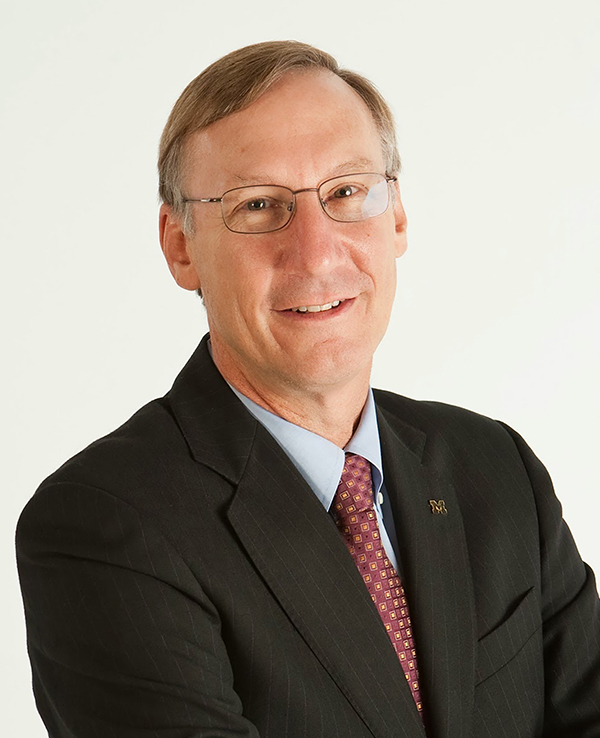Stephen Forrest named Henry Russel Lecturer for 2020
Stephen R. Forrest has been selected as U-M’s 2020 Henry Russel Lecturer, the university’s highest honor for senior faculty members.

 Enlarge
Enlarge
Stephen R. Forrest, a scientist who has made breakthrough advances in understanding how the behavior of light and electrons may be controlled, has been selected as U-M’s 2020 Henry Russel Lecturer.
The Henry Russel Lectureship, considered the university’s highest honor for senior faculty members, is awarded annually to a faculty member with exceptional achievements in research, scholarship or creative endeavors, as well as an outstanding record of teaching, mentoring and service.
Forrest is the Peter A. Franken Distinguished University Professor of Engineering, the Paul G. Goebel Professor of Engineering, professor of electrical engineering and computer science, and material science and engineering, College of Engineering. He also is a professor of physics, LSA, and served as vice president for research from 2006-13.
As a research engineer at Bell Labs, Forrest worked with photonic components and electronic circuits to demonstrate the first avalanche photodiode, a highly sensitive semiconductor device that converts light to electricity, and invented the first reliable planar photodetector. These breakthroughs enabled the high-performance switches that are central components in today’s long-distance fiber-optic telecommunication systems.
Forrest also developed organic thin-film semiconductor nanostructures comprising high-performance light-emitting diodes. These efforts have produced technology that enables heads-up and flat-panel displays that are becoming ubiquitous in smartphones, televisions, cameras, flat displays and other applications.
His third area of major research accomplishment is in the use of thin-film materials to produce a new generation of ultra-low-cost solar cells with a high energy conversion efficiency.
With research appearing in more than 550 papers in world-leading journals, Forrest holds more than 320 U.S. patents and has helped found five companies. He joined the university in 2006.
Forrest has received several honors and awards, including election to the American Academy of Arts and Sciences, the National Academy of Sciences, the National Academy of Engineering and the National Academy of Inventors.
He has chaired or co-chaired the dissertation committees for 60 Ph.D. students and has mentored 34 postdoctoral fellows.
Forrest will deliver his lecture during the winter term of 2020.
Story by Safiya Merchant
Originally published in The University Record
 MENU
MENU 
